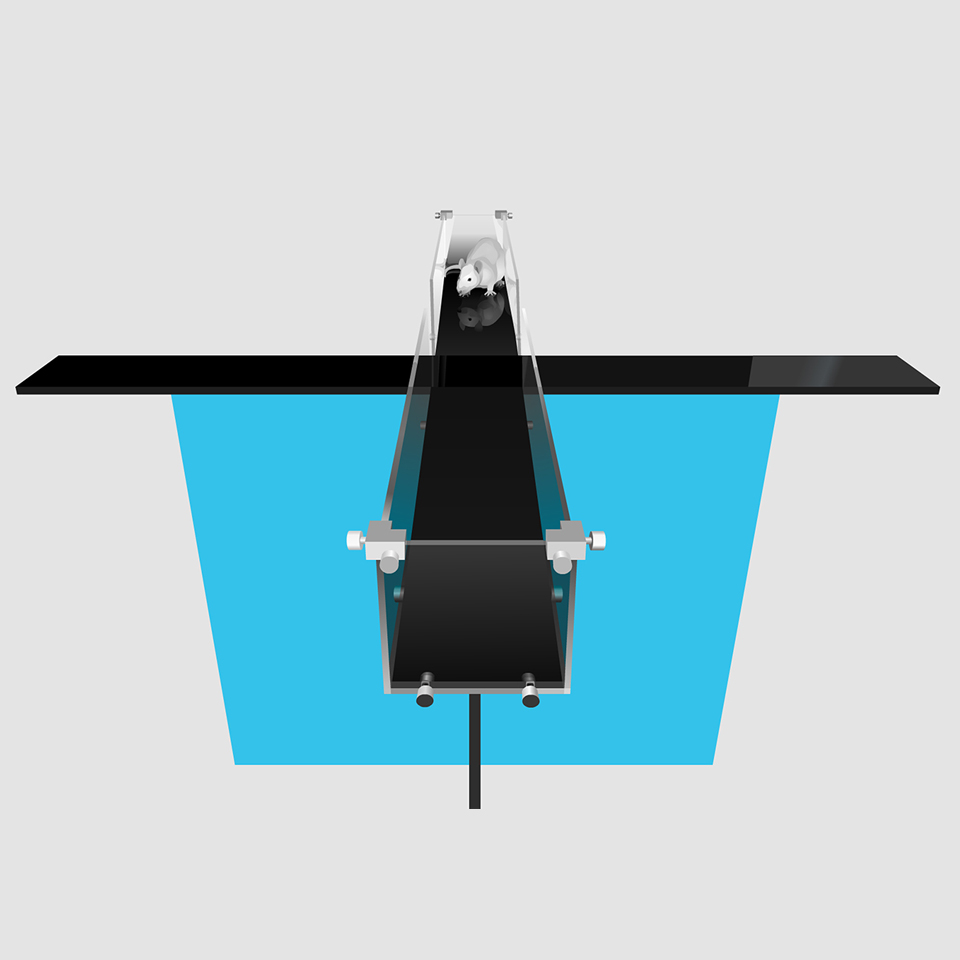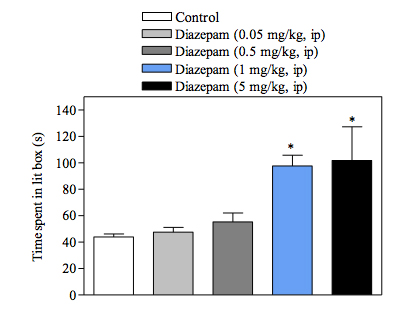Newsletter # 05

Animal models
Anxiety disorders are the most common type of psychiatric disorders characterised by fear and anxiety. The feeling of fear is usually accompanied by physical symptoms (such as heart racing, sweating, tense muscles and so on) and changes in behaviour often called avoidance behaviours. Although everyone experiences anxiety from time to time, anxiety becomes a disorder when the symptoms or avoidance behaviours interfere with the person's life and stop them doing things they want to do.
It is imperative to develop new and better treatments for anxiety disorders because current treatments (benzodiazepines, selective serotonin reuptake inhibitors, monoamine oxidase inhibitors, tricyclic antidepressant) present side effects such as withdrawal symptoms, sedation, nausea, weight gain, nervousness, sexual dysfunction...
-
Elevated plus maze (EPM) in mouse and rat
-

-

-
The EPM situation rests on the conflict between the innate tendencies of rodents to explore novel environments and avoid open and brightly lit areas. Anxiolytic drugs increase the time spent in the open arms and increase the number of open arm entries in this test.In mice (left panel) and in rats (Right panel), 1 mg/kg diazepam induces a significant increase in the time spent in the open arms.
-
Light-dark test (LD) in mouse

Dose-response curve of diazepam -treated mice in the light dark test. -
Marble burying in mice

The marble burying test is used to record the number of marbles buried by mice placed in a novel environment. Anxiolytic drugs reduce burying behaviour. 1 mg/kg diazepam significantly reduces the number of buried marble.
-
We look forward to hearing from you.
Get in touch


 PREVIOUS
PREVIOUS